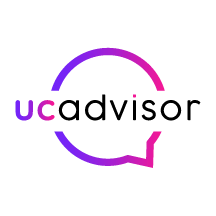
04 Sep Using Digital Transformation to Provide Housing Association Residents with Well-Maintained Homes
Recently, we’ve been exploring how digital transformation efforts can assist Housing Associations (HAs) in overcoming their current reputational crisis, and delivering better services to residents.
While HAs are experiencing the same challenges caused by supply chain shortages and economic downturns as any other organisation, they’re also facing increasing pressure from government groups and regulatory bodies to evolve and adapt. In fact, approximately 67% of HAs have invested in new IT solutions in recent years, to stay ahead of the changing landscape.
The Charter for Social Housing and Residents report we’ve been analysing in recent weeks outlines a variety of areas Housing Associations need to focus on to adhere to new standards in the industry. The fifth point covered in this report looks at how organizations can ensure their citizens have access to well-maintained homes and properties.
Once again, delivering on this new expectation requires HAs to think about more than just hiring new professionals, or planning better property builds. Primarily, to become more resident-centric, Housing Associations will need to optimize and enhance their technology stack.
Let’s take a closer look at how digital transformation initiatives can assist HAs with the quest to deliver more well-maintained homes and properties.
Providing Citizens with Well-Maintained Homes
Properly maintaining homes according to the standards of today’s citizens requires a multi-faceted approach. HAs need to invest in ensuring they have the right team members on-hand to fix issues as and when they occur. However, they also need to invest in technology to ensure team members can communicate, collaborate on issues, and connect consistently with their citizens.
At a core level, intelligent communication solutions, such as CCaaS platforms with connected tools for communication and collaboration can transform the way Housing Associations deliver maintenance services to consumers. For instance, rather than relying exclusively on telephone calls and emails to determine a problem that needs to be fixed, agents, engineers, and specialists can connect with residents using video chat.
Implementing video conferencing into the communication strategy means residents can more easily showcase the core components of a fault to a professional, without having to attempt to diagnose the issue themselves. Building an omnichannel contact centre environment in the cloud also allows Housing Associations to access a more comprehensive view of the problems consumers are facing.
For instance, analytical tools can be used to track keywords related to specific maintenance issues, such as damp or mould, and showcase patterns emerging in specific areas. The same tools can also automatically notify agents when they need to follow up on an issue with a resident.
When utilising external resources such as third-party contractors and engineers, HAs can use the same communication and collaboration tools to improve the flow of information. Teams can reach out to residents proactively though low-cost channels such as SMS and agentless dialling, to help them set up an appointment for a viewing or a technician visit. In turn, if a known issue begins to appear more frequently across a specific area, HAs can connect with residents automatically to let them know the problem is being reviewed.
The Impact of Digital Transformation on Home Maintenance
The innovation of more effective tools for contact centre management and collaboration is just one example of how HAs can leverage new technologies to better maintain homes and properties. While a CCaaS solution with embedded collaboration tools can help agents to connect with citizens, partners, and contractors on the channels of their preference, it can also provide valuable insights into the operations of the HA organization.
Useful cross-channel tools can help teams to monitor their performance when it comes to addressing customer issues quickly and effectively. Cross-channel interaction histories can also help agents to interact with citizens on a more personal level, accessing contextual information during any conversation, without having to utilize a range of different apps.
Additionally, technology can also be used to address maintenance issues in other ways, such as:
• Enabling virtual viewings: With video tools, Housing Associations can provide contractors and third-party specialists with a direct insight into the problem that needs to be fixed, before they have to travel to a specific resident. This can be an excellent way to reduce the need for unnecessary travel, particularly if residents can implement fixes on their own. It also means professionals can use the information they collect to ensure they’re fully prepared to handle any issue that may have occurred immediately, reducing the need for follow-ups.
• Delivering self-service support: Through the use of artificial intelligence and chatbot tools, Housing Associations can provide citizens with step-by-step guidance on how to resolve an issue directly. This reduces the amount of time agents spend dealing with different calls and requests, so they can focus on the issues most in need of their expertise. It also ensures housing association residents can access faster solutions to their problems.
• Managing appointments: CCaaS tools and online booking technologies can help to align HAs, residents, and third-party contractors to arrange appointments for maintenance and repair. This helps to ensure citizens get a better experience, by giving them direct insight into when their service will be available. After all, no resident wants to spend all day waiting for a repairman to arrive at their home. It also reduces the risk of missed appointments, which can cost HAs dearly in terms of resources and time.
• Predictive analytics: Analytical tools built into the HA technology roadmap can do more than just provide an insight into the core issues certain residents might be facing in a specific area. Intelligent tools can also leverage historical data to predict when additional issues might take place. Using data, HAs may be able to more effectively predict when problems might take place, so they can offer their citizens a more preventative level of care. The same tools can even help HAs to book routine maintenance at specific times to ensure a property can continue to perform according to the highest standards.
• Field management: Digital tools in the HA environment can also assist with the management and organization of crucial members of staff within the field. HA’s need to be able to effectively keep track of their human resources, so they can determine which team members are available to respond to issues at any given time. Scheduling and calendar management tools can help to reduce the risk of overbooking workers. The right tools can also provide insights into team performance, and productivity issues.
Evolution in the Housing Association
Investing in the ability to provide residents with safe, well-maintained homes will be crucial for housing associations going forward. The right tools and technologies can help these groups to not only improve the quality of care they deliver to citizens, but also adhere to higher standards for support and customer care. Additionally, the right tools will ensure HA teams can work together more efficiently and productively in the evolving landscape.
However, while digital transformation is clearly becoming an increasingly important initiative for HAs, taking the initial steps towards growth can be difficult. Everything from finding the right technology vendor, to seeking funding can be complex.
Fortunately, UC Advisor can help. We offer a range of tools to help Housing Associations and other companies track down the vendor ready to address their specific needs. Plus, with our Transformation Fund, you’ll be able to access the financing you need to make your transformation dreams a reality. Contact our team today to learn more about how we can help you evolve.



